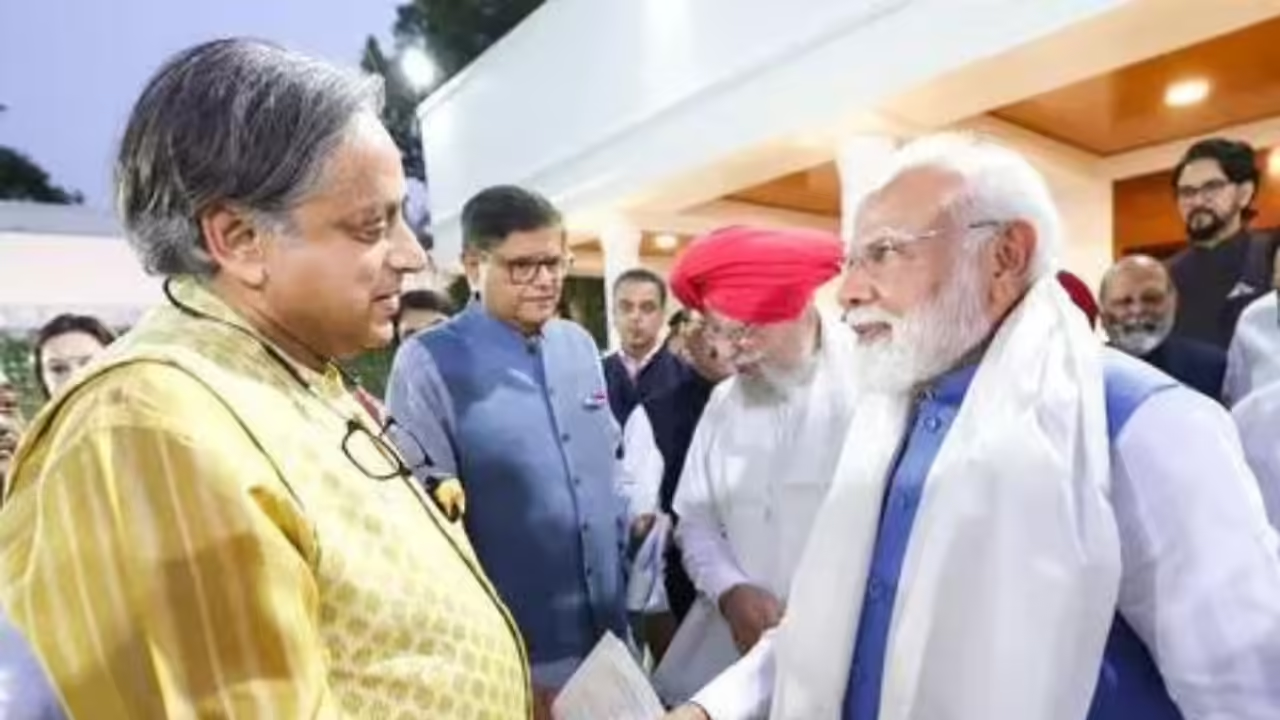Now Reading: Tharoor Calls PM Modi a ‘Prime Asset’ on Global Stage, BJP Hits Back at Congress
-
01
Tharoor Calls PM Modi a ‘Prime Asset’ on Global Stage, BJP Hits Back at Congress
Tharoor Calls PM Modi a ‘Prime Asset’ on Global Stage, BJP Hits Back at Congress

Senior Congress leader Shashi Tharoor stirred political debate after praising Prime Minister Narendra Modi’s global stature, calling him a “prime asset” for India in international diplomacy. While Tharoor later clarified his position, the BJP quickly seized the opportunity to criticise Rahul Gandhi’s leadership, turning the remark into a fresh flashpoint ahead of upcoming elections. The statement has sparked discussion across political circles, including in India’s Tier 2 cities where voter sentiment is rapidly evolving.
Tharoor’s Remark and the Reaction
Speaking at an event, Tharoor acknowledged PM Modi’s role in enhancing India’s global presence, particularly in multilateral forums and diplomacy. His use of the term “prime asset” was interpreted by many as rare praise from a senior Opposition leader for the sitting Prime Minister.
While some viewed it as a diplomatic and nuanced observation, others in the Congress expressed unease, leading Tharoor to clarify that his statement was about Modi’s global image, not an endorsement of domestic policies.
BJP’s Quick Response
The BJP was swift to respond, using the remark to highlight what it called a lack of unity within the Congress party. Several BJP leaders pointed out the contrast between Tharoor’s comments and Rahul Gandhi’s frequent criticism of PM Modi, especially on international platforms.
They argued that even Congress leaders were now recognising the Prime Minister’s global appeal and leadership, particularly in handling events like the G20 Summit and India’s relations with the US and Europe.
Congress in a Delicate Spot
Tharoor’s remark has once again brought to light the internal differences within the Congress party. While Tharoor has often been viewed as a more liberal and globally-minded politician, his occasional admiration for rival leaders has sometimes put him at odds with the party line.
In response to the latest comment, Congress leadership maintained that the party continues to be critical of the government’s domestic performance, particularly on issues like unemployment, inflation, and press freedom.
Public Sentiment Beyond Delhi
In Tier 2 cities like Indore, Nagpur, and Patna, where regional leaders hold sway and voters often weigh both national and local issues, such remarks spark curiosity and debate. Many young voters, especially first-timers, are closely watching how parties handle international relations, image building, and internal discipline.
Political analysts suggest that such statements, while momentary, can influence perceptions among urban and semi-urban voters who value India’s standing in the world.
Conclusion
Shashi Tharoor’s statement on PM Modi has added an unexpected twist to the ongoing political narrative. While it reflects the complexity of Indian politics where personal respect and political rivalry often intersect, it also shows how sensitive and impactful public remarks can be in shaping voter opinion. As election campaigns heat up, such moments may continue to play a key role in public perception, especially in the politically aware heartlands of India.

























